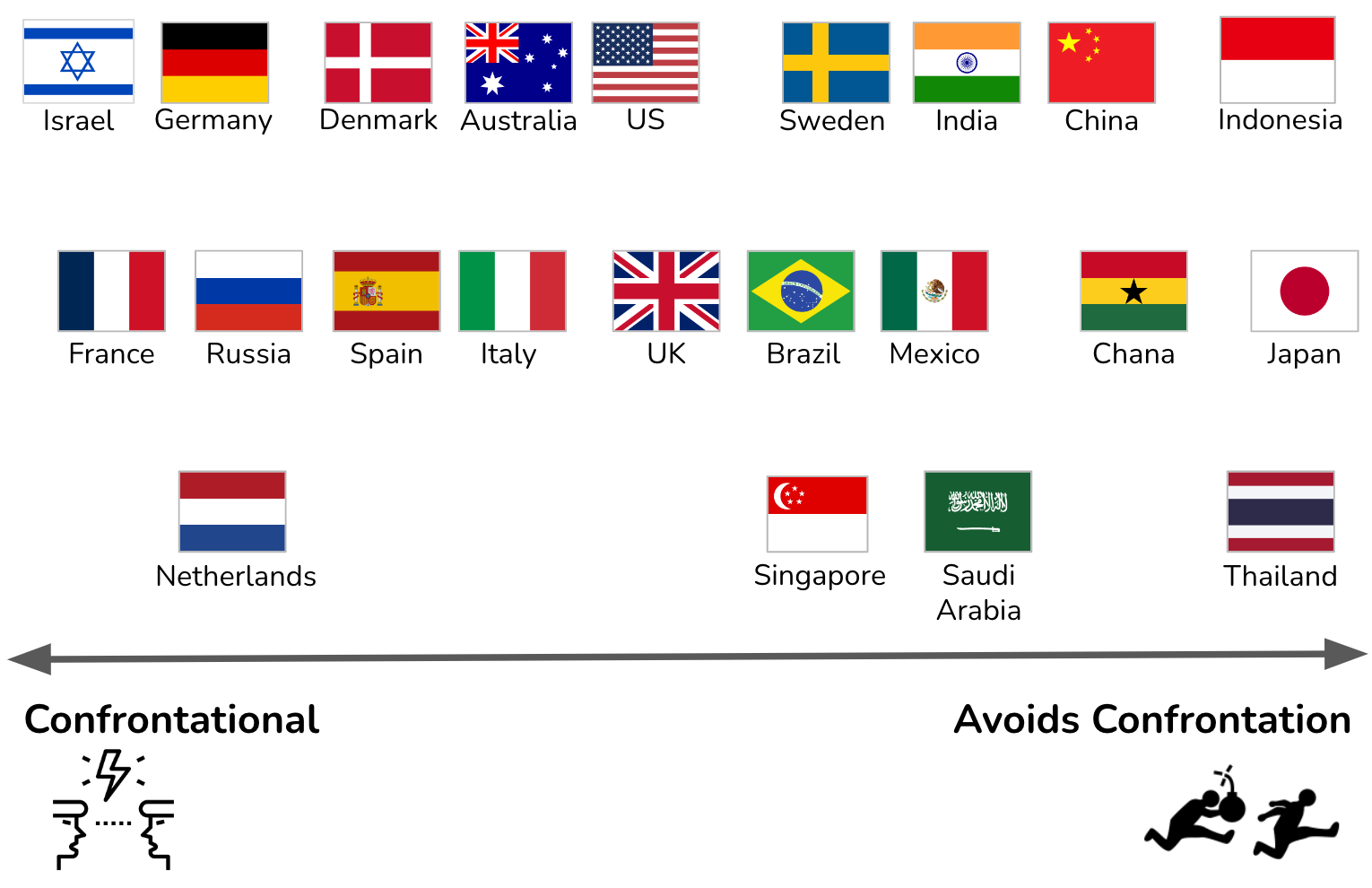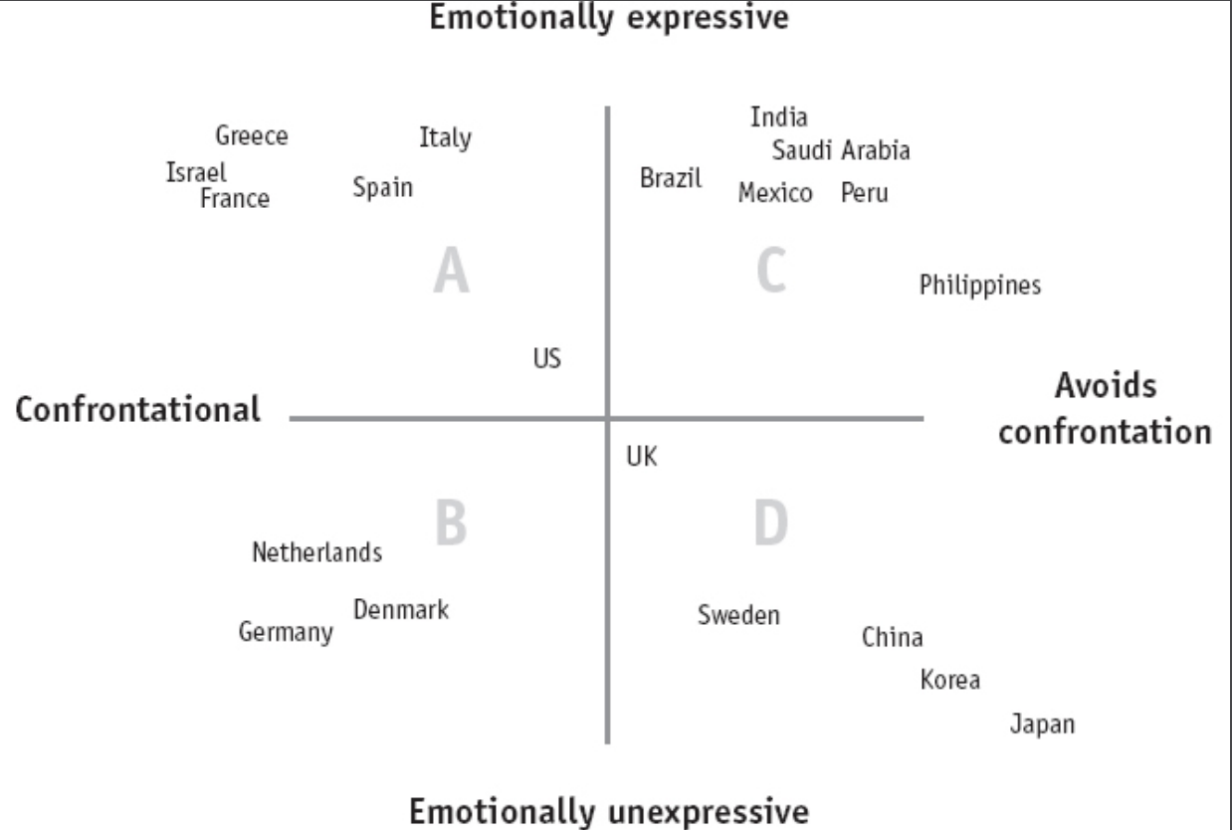Cultural Dimensions
DISAGREEING
How Different Cultures Disagree Productively & Approach Conflict

How do different cultures approach conflict? Does the culture you come from tend to express disagreement openly or tacitly?
Conflict and disagreement are necessary realities in the business world. But the rules for appropriate disagreement vary across cultures. In discussing conflict and culture, cultural communication expert Erin Meyer divides disagreement styles into two extremes: “confrontational” and “avoids confrontation.”
Key Characteristics
|
CONFRONTATIONAL |
AVOIDS CONFRONTATION |
|
|

COUNTRY COMPARISON
The chart shows examples of where certain countries fall on the disagreeing scale.
In the following video, you will get an understanding of how, in cross-cultural business negotiations, people from different cultures express their disagreement and how emotionally they can get.
CONFRONTATIONAL VERSUS EMOTIONAL EXPRESSIVENESS

Get in Touch With Us

